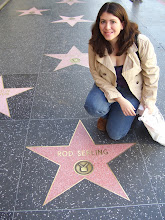I think that the most financially feasible was www.irunthistown.net. I think that the creator pinpointed a hole in the market for a specific group- beginner to intermediate runners. I really like the idea of the different maps for runners based on location, type of terrain and elevation. I do not run, but a lot of people in my family do and I think that they would really appreciate this feature. My family members also often discuss what kind of shoes they should buy, so I know that they would use this feature on the site. I also think that aspect of the site has the most chances of bringing in profits. Maybe she could set up something like A store but with shoes and other running accessories to make a profit. I think that this has the potential to make a lot of money. My only concern is that the desire to profit from the sale of shoes and running accessories does not affect the unbiased reviews of these products. That will negatively impact their fan base.
I think that the “honorable mention” is www.all4girls.com. When I was younger, I would have loved a website like this. Also, since younger generations grew up with the Internet, they are more likely to use it a lot more than older people. This should boost the visits that they site gets daily.
I think that both of these sites, along with many others proposed over the last 2 weeks, have a good chance of being successful.




